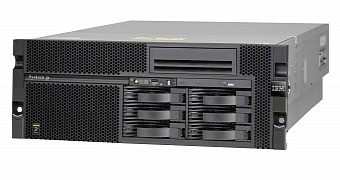Lenovo may have focused on the consumer market during the first decade of its tenure as a world-class supplier of computers, but it has been expanding into the professional and industrial markets as well. The latest deal with IBM is just new evidence of that.
Servers are an important part of humankind's daily operations, because there would be no Internet data and nothing to move that Internet data without them.
IBM is one of the world's largest suppliers of servers, especially x86-based ones. The x86 technology is a type of CPU architecture, the one that all Intel and AMD CPUs are designed on.
Soon, IBM will no longer have much of a stake in this market, because it has agreed to sell its server business to Lenovo.
The deal
The latter is willing to pay roughly $2 billion to the former, or €1.58 billion, according to exchange rates. That's $1.8 billion in cash, or €1.4 billion, with $280 million / €220 million left to be paid in Lenovo stock.
So we suppose that IBM will be getting a share in Lenovo in exchange for agreeing to pass on its server technology and operations.
Once the transaction is complete, Lenovo will own System x, BladeCenter and Flex System blade servers and switches, as well as IBM's x86-based Flex integrated systems, NeXtScale and iDataPlex servers. Plus associated software, blade networking and maintenance operations of course.
IBM will be left with PureApplication and PureData appliances, System z mainframes, Power Systems, Storage Systems, Power-based Flex servers.
At the end of it all, Lenovo should settle nicely as the third greatest provider of x86-based servers in the world. Not bad, knowing that the market segment makes over forty billion dollars/euro each year, cumulatively.
And since Lenovo is already in the top three on the PC and smartphone markets, that's a pretty big deal.
The road forward
Lenovo will follow IBM's x86 server product roadmap, which means that you'll still be getting new Flex and x86-based PureFlex integrated systems. Also, IBM will provide maintenance on Lenovo's behalf for quite a while.
Meanwhile, Lenovo will serve as an IBM OEM, as well as seller of storage and software products and technologies, including flash, Smart Cloud and Linear Tape Open (LTO) products, among other things.
What's left now is to sit back and watch what other transactions Lenovo starts hunting for. Maybe some sort of stake in the 3D printing market?

 14 DAY TRIAL //
14 DAY TRIAL //